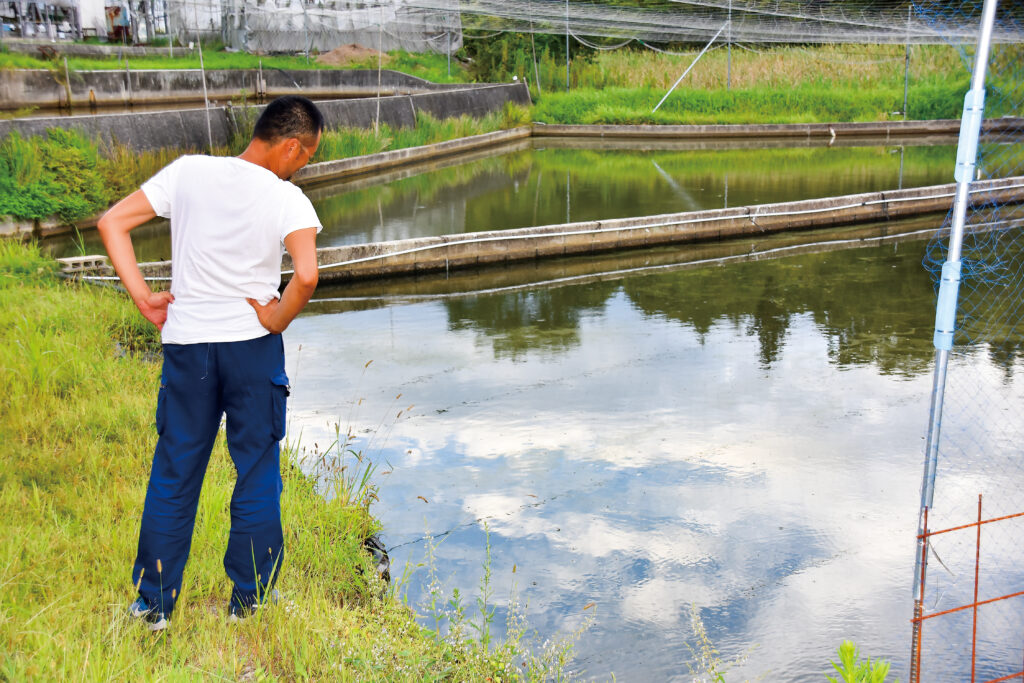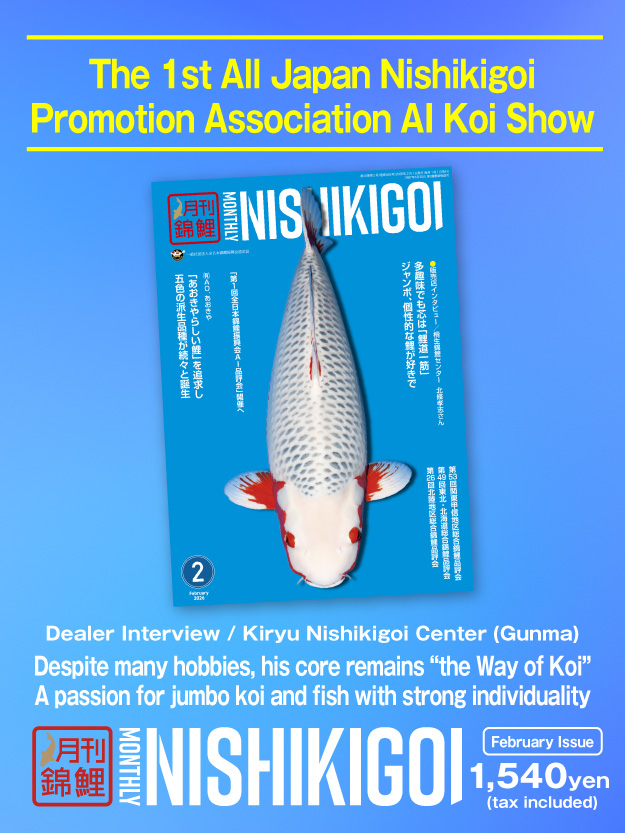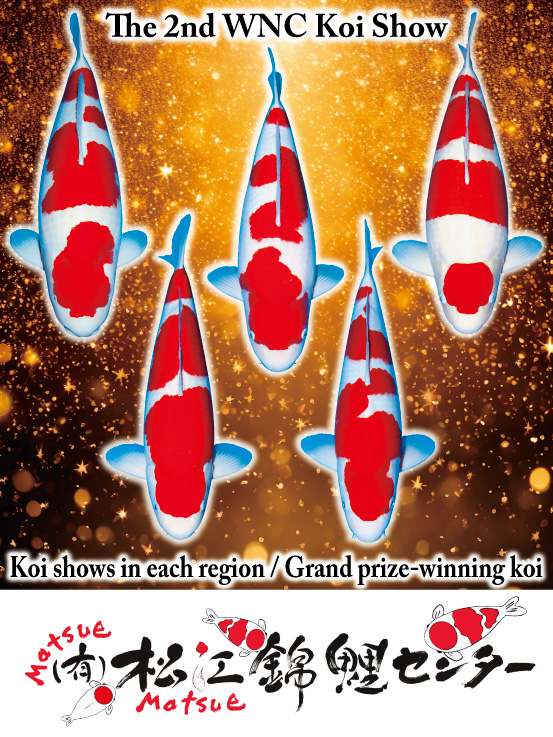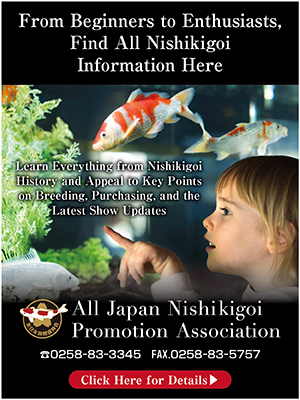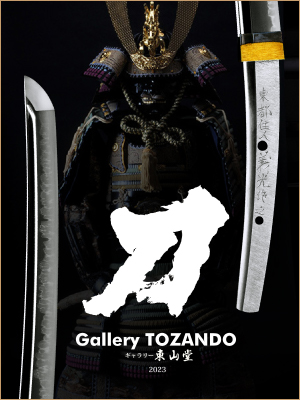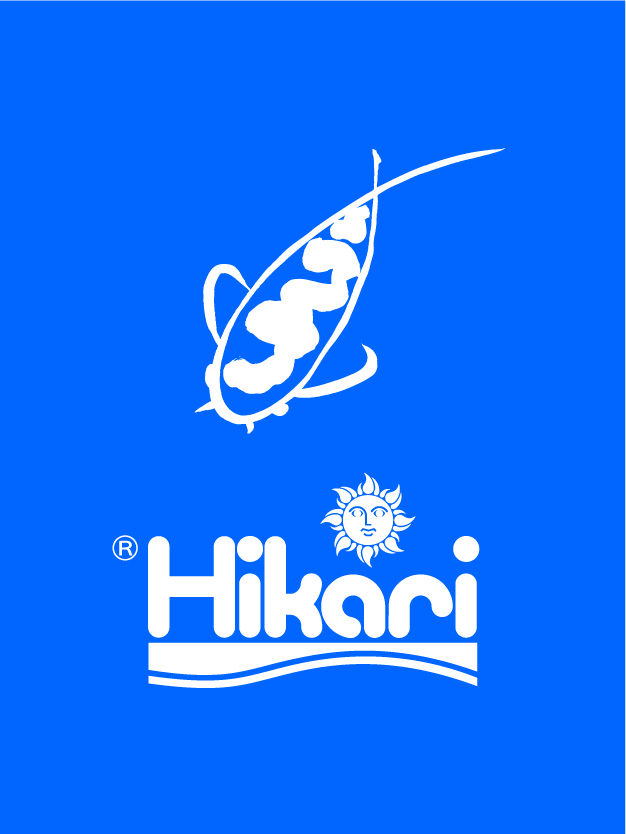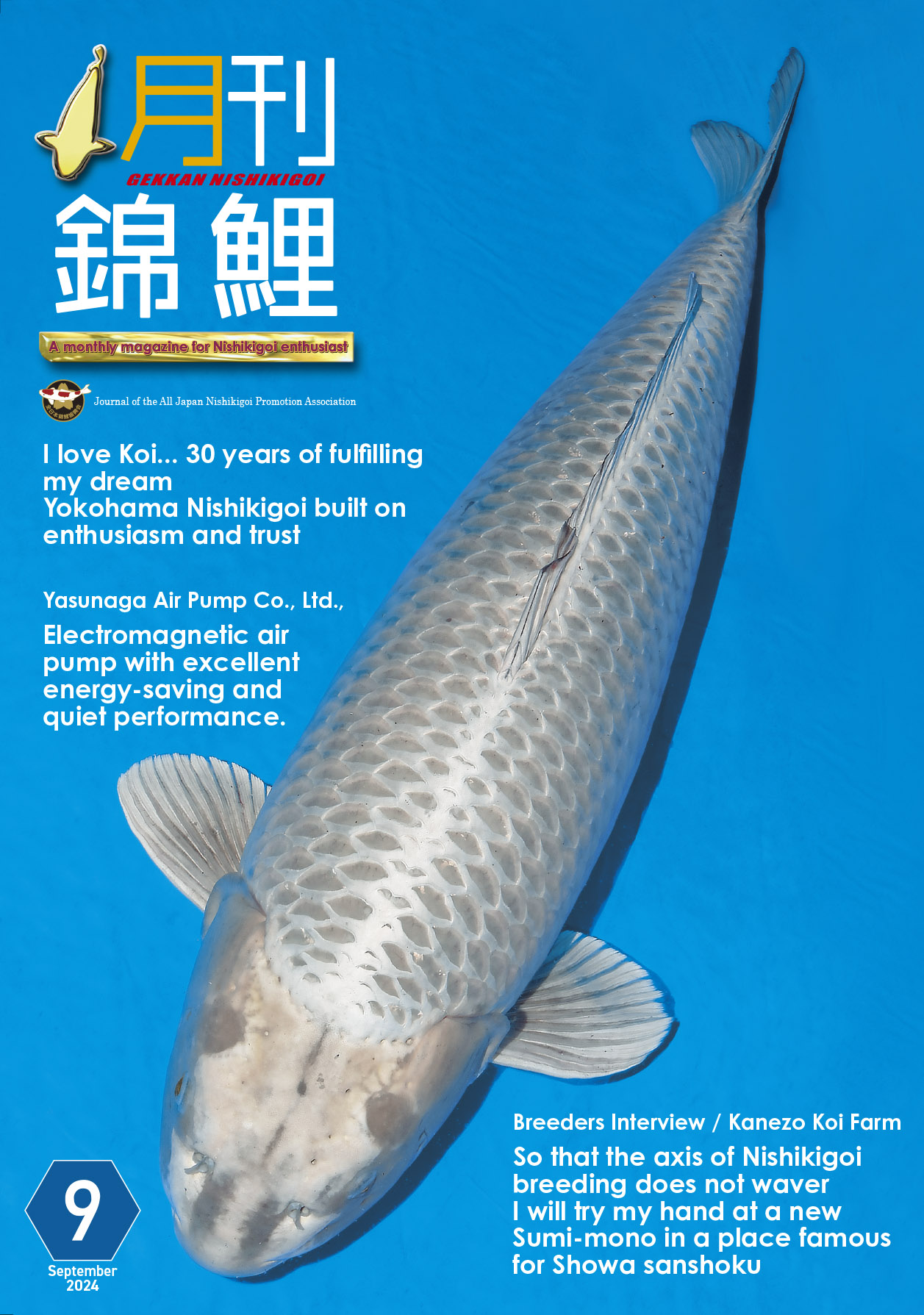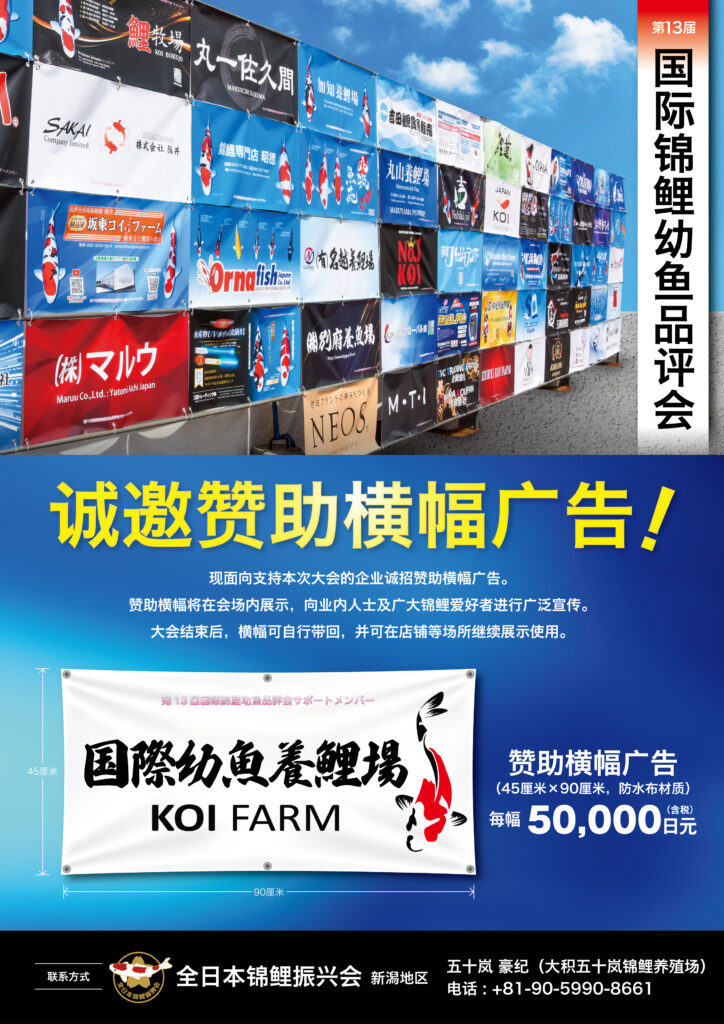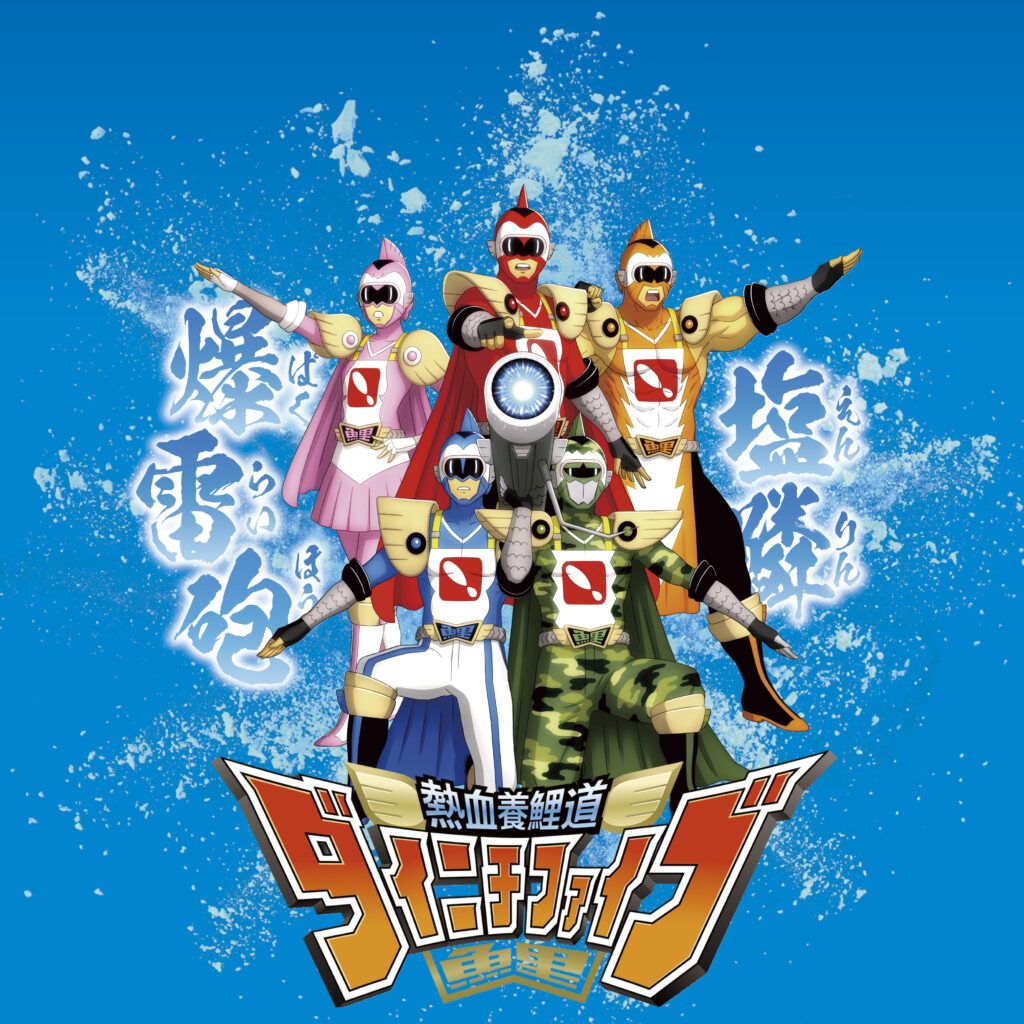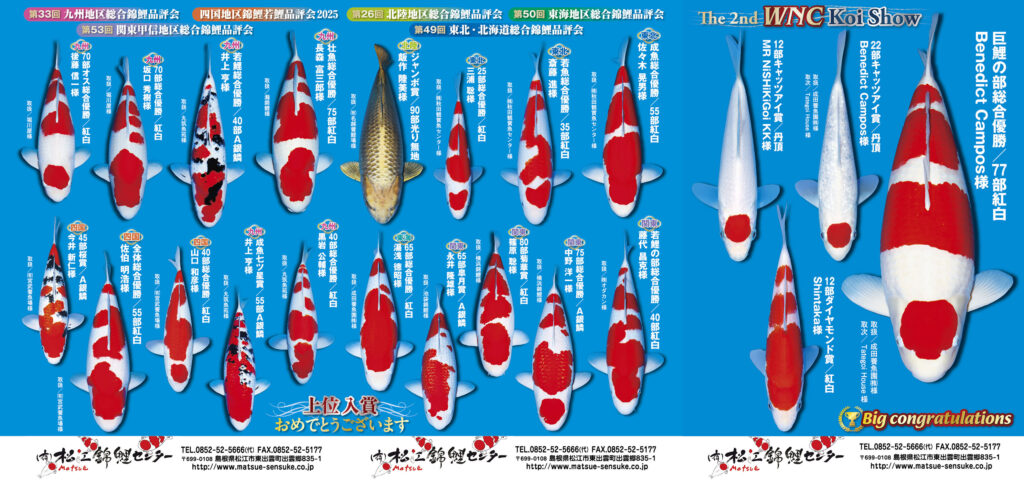After winning an prize at the koi show, consciousness also underwent a change.How to provide the best possible materials.
ー In the 42 years I’ve been involved with koi, what are your commitments, what you value, and your driving force?
Tamaura: Well, it’s definitely the joy customers show when they buy the koi. The look of amazement and happiness on their faces when they see the koi. It doesn’t matter if they’re Japanese or foreigners, everyone gets really excited, and seeing that makes me happy. I guess it’s because I really love koi myself. After doing this for over 40 years, even I don’t fully understand it (laughs). When you’re deeply immersed in this world, it just becomes normal. It’s not so much about my koi winning prizes that makes me happy, but more about seeing those reactions from customers. However, if the koi don’t win prizes, those customers wouldn’t come, so I think it’s essential to participate in competitions.
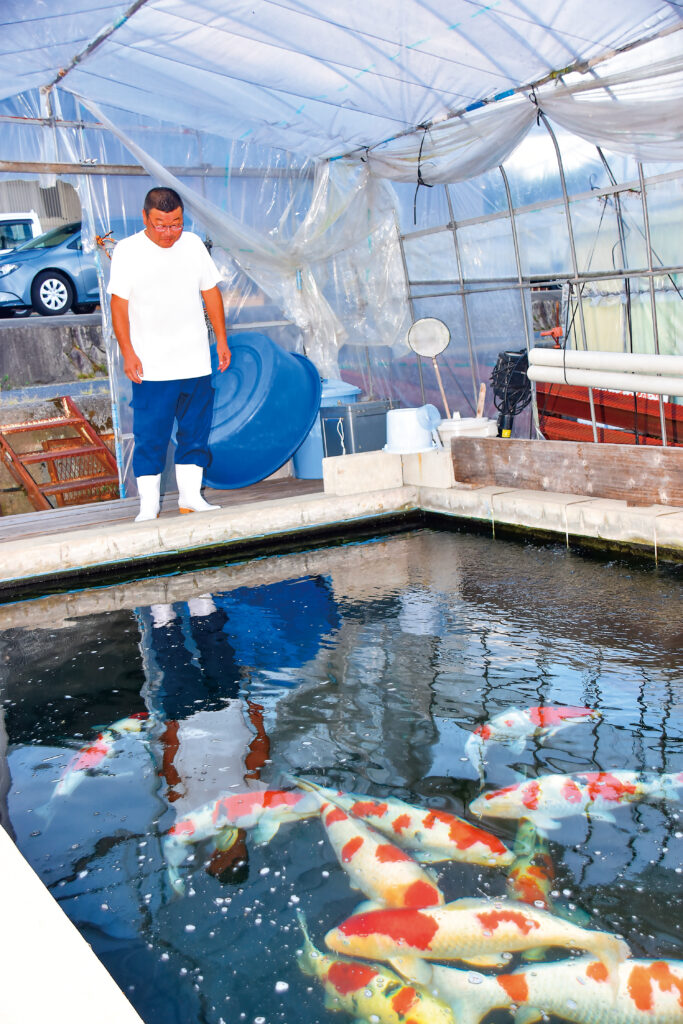
ー So, you can also sense the trends in koi, right?
Tamaura: It’s more about sensing the trends of the world. I think we inevitably lag behind, so it’s not just about the trends in koi but also about feeling the atmosphere of the industry.
Also, it’s good to be constantly challenged at a high level. When you’re lined up with people like Mr. Narita and Mr. Sakai, you’re naturally compared.
ー In the last two or three years, there’s been an increase in award-winning koi. Has anything changed?
Tamaura: Hmm, what could it be? (laughs)
Hidemi: I think it’s because we’ve been able to devote more attention to them. From my perspective, reducing the number of ponds has allowed us to focus more on each koi.
Tamaura: It’s like our approach to competitions has changed. Maybe we didn’t have that mindset before.
Hidemi: It’s not that we weren’t interested in competitions.
Tamaura: It’s not that we weren’t interested, but… there was a time in 2016 at the young koi show in Hiroshima, when a sanshoku (Picture⑪) made it into the rankings. That was incredibly exciting. I think that’s when our desire to win prizes really changed. That time was really thrilling (laughs).
But honestly, it’s hard to win prizes just by keeping them at our place. Mr. Narita, for example, is not just good at raising them but also at the final touches. That makes a huge difference.
We’re producers, so our job is to create and provide the basic material. How to polish that to a shine is something we can’t do without the distribution people. The existence of distributors allows us producers to exist, so in a way, all we can do is provide.
ー So, each has their role to play.
Tamaura: If we were to both produce and finish the koi, there would be no need for distributors. We don’t have the facilities or enough staff to handle everything, so we’re already doing our best just by producing. It might be an old-fashioned way of thinking, but trying to do too much would mean we can’t focus properly, and something would inevitably be neglected.
